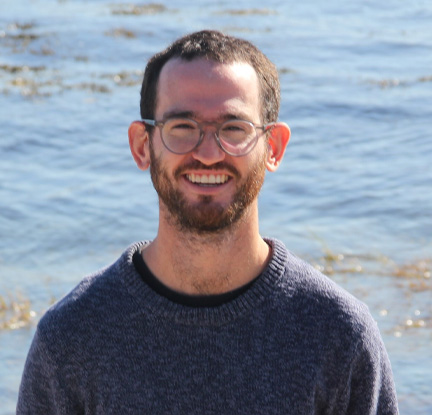
Zach Gordon – National Seaweed Hub Lead
Connecticut
Zach is an assistant extension educator with Connecticut Sea Grant and works primarily with seaweed aquaculture and food safety. His main projects include hosting the annual seaweed aquaculture meeting for Connecticut, developing seaweed food safety guidance, and managing the seaweed mobile laboratory. He also teaches Seafood HACCP training for aquaculture industry members. Before joining Sea Grant in 2021, Zach worked for many years in the shellfish aquaculture industry in New England in every aspect of farming from the hatchery, to grow-out and processing. He received a bachelor’s degree in environmental science from Skidmore College and a Professional Science Master’s (PSM) in Ocean Food Systems from the University of New England.
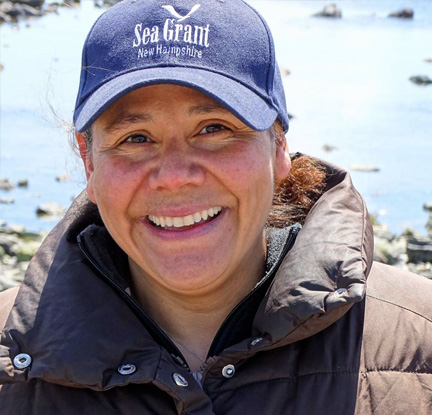
Gabriela Bradt
New Hampshire
Gabriela is a Fisheries Extension Specialist for New Hampshire Sea Grant and the University of New Hampshire Cooperative Extension. Her programming is mainly focused around seafood marketing, market creation and consumer education and awareness about New Hampshire’s fisheries and local seafood accessibility. She has worked extensively with NH fishermen, chefs and other stakeholders in creating markets for aquaculture products including seaweed, oysters and mussels. She works closely with her Aquaculture Specialist in providing extension and scientific support to stakeholders and exploring possible avenues for expanding aquaculture and other fisheries possibilities in NH. She organizes and leads culinary and foraging workshops, fishing gear workshops and helps to guide and facilitate industry meetings. She also conducts research on invasive green crabs as a potential fishery and seafood product, soft-shell crab production and leads citizen science programs looking at green crab population and distribution in coastal NH as well as long term monitoring of microplastics and marine debris.
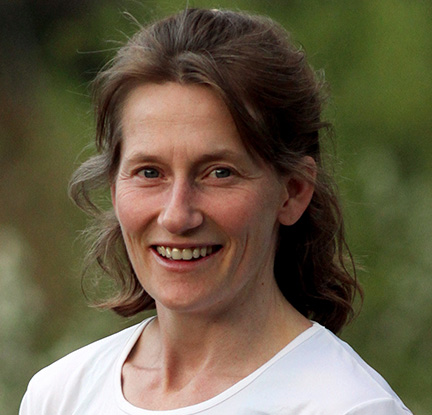
Meg Chadsey
Washington
Meg Chadsey is Washington Sea Grant’s Ocean Acidification Specialist, a position created in 2013 to help WSG’s constituents understand, communicate and address ocean acidification (OA). As Sea Grant Liaison to NOAA’s Pacific Marine Environmental Laboratory, Meg also fosters collaborations across NOAA, Sea Grant, and the broader ocean acidification community in support of these activities. Meg became involved with seaweed aquaculture in 2015, as part of a team investigating the potential of cultivated kelp to mitigate ocean acidification. Her work in this area has expanded beyond science communication to include innovative partnerships with seaweed growers, processors and downstream users in the agricultural, culinary, and biofuels sectors. Meg has a bachelor’s degree in Genetics from Cornell University, a Ph.D in Microbiology from the University of Washington, and worked as a molecular biologist before returning to marine science (her first love).
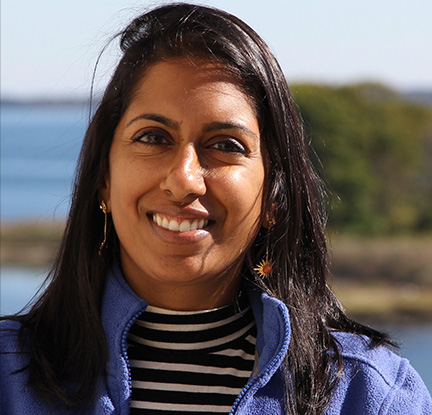
Anoushka Concepcion
Anoushka’s career in aquaculture spans over two decades and includes positions in the commercial industry, research, university extension and outreach, and the federal government. Her programming focuses on expanding sustainable marine aquaculture nationally and globally. Recognizing the need for and importance of equitable, evidence-based, and neutral information about the emerging seaweed industry in the U.S., she created the multi-stakeholder driven National Seaweed Hub in collaboration with colleagues from nine other Sea Grant programs. Anoushka earned her B.S. in Marine Biology from the UNC at Wilmington and M.S. in Fisheries, Animal, and Veterinary Sciences from the University Rhode Island. Between earning degrees, Anoushka managed microalgal production at Shrimp Improvement Systems, LLC in the Florida Keys. She currently serves as Chair of the Strategic Advisory Council for the UN Global Compact’s Global Seaweed Coalition, where she manages a group of experts to furnish perspectives and guidance on seaweed’s role in the global economy, society, and environment. Anoushka also serves on the Executive Board of the US Aquaculture Society and on the Board of Directors for the non-profit organization Minorities in Aquaculture where she provides strategic input on the internship program and serves as a mentor to young women of color interested in a career in aquaculture. In addition, Anoushka is currently working on her PhD in Marine Affairs at the University of Rhode Island. Anoushka is passionate about providing the world’s population with responsibly produced seafood.
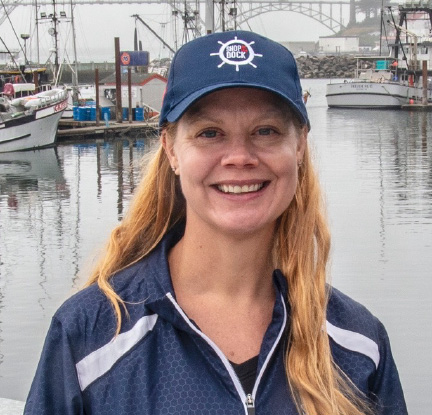
Angee Doerr
Oregon
Angee Doerr is the Oregon Sea Grant and Oregon State University Extension specialist for Lincoln County. Angee is an interdisciplinary ecologist and social scientist focusing on marine systems on the West Coast. In her role with Oregon Sea Grant, she focuses on commercial fisheries and marine coastal resources, providing community outreach and education on subjects ranging from marine resource management to nearshore energy and sustainable economic growth for coastal industries. Angee works closely with community partners, including commercial fishermen, managers, and researchers, to advance our understanding of fisheries, aquaculture, and other marine resources in Oregon and along the West Coast. She holds a BS, an MBA and a Ph.D. focused on socially and ecologically sustainable fisheries. Angee is also a Captain in the U.S. Navy Reserve.
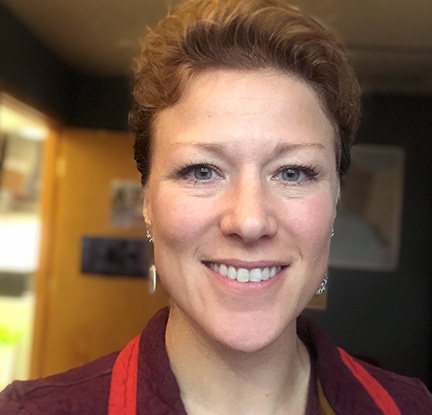
Melissa Good
Alaska
Melissa Good is the Alaska Sea Grant Mariculture Specialist. She actively works with community members, industry, Alaska Native Tribes and Corporations, seafood processors, community leaders, and regulators to support sustainable marine aquaculture in Alaska.
Her recent work involved a “farm-to-table” project to connect Alaskan consumers to locally-grown oysters and seaweed products. Melissa has also developed educational mariculture materials, conducted a global market assessment to identify technology and equipment in primary processing and manufacturing of large volumes of seaweed. She’s also established a National Sea Grant Seaweed Hub and a pilot seaweed farm in western Alaska, while simultaneously developing seaweed mariculture economic tools.
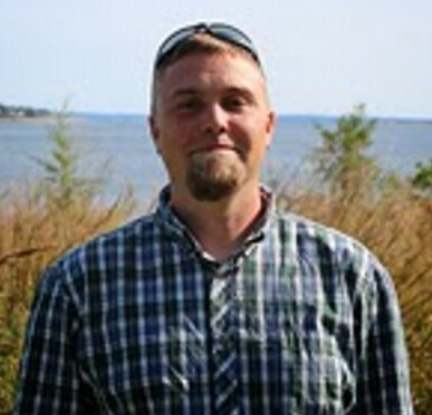
Rob Hudson
Rhode Island
Rob Hudson is the Fisheries and Aquaculture Extension Specialist for RI Sea Grant, working primarily on the team’s seafood portfolio including finfish, shellfish and kelp as it relates to the wild fisheries and aquaculture production. Prior to joining University of Rhode Island (URI)’s Coastal Resource Center (CRC) and RI Sea Grant, he was the Shellfish Hatchery Manager and was responsible for the operation of the CEED Shellfish Hatchery at Roger Williams University, while being an Adjunct Professor for various Biology and Aquaculture courses. Rob was the Restoration Ecologist for Save The Bay for 12 years. Some of his work includes restoration, monitoring and research with bay scallops, oysters, quahogs, ribbed mussels, eelgrass, macroalgae and salt marshes. Rob has also worked at CRC and RI Sea Grant as a Fisheries and Aquaculture Graduate Research Assistant. Rob Hudson holds a Master’s of Environmental Science and Management degree, Graduate Certificates in GIS and Remote Sensing as well as Community Planning and a Bachelor of Science degree in Marine Biology, all from URI. Currently, Rob is a Ph. D, student at URI in the Biological and Environmental Sciences program.
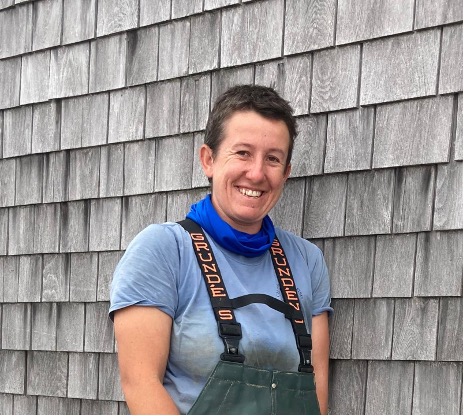
Rachel Hutchinson
Massachusetts
Rachel Hutchinson is the Marine Resource Specialist with Barnstable County Cooperative Extension and Woods Hole Oceanographic Institution Sea Grant. Her focus areas are water quality monitoring, shellfish aquaculture and research and seaweed. Prior to joining Barnstable County and Sea Grant, she was the Assistant Shellfish Constable/ Propagation Specialist for the Town of Chatham MA, where she focused on raising shellfish seed to support and enhance the wild commercial fishery as well as recreational harvest. Along with growing shellfish in a nursery and field sites, Rachel was an enforcement officer, checking licenses, catch limits and sizes and working with state and federal agencies to determine regulations and best conservation methods. Prior to that she worked as a Natural Resource Officer for the Town of Eastham MA, where she worked in their shellfish hatchery, along with other duties including land management and harbor patrols. She has a bachelor’s in geology with a concentration in environmental science and education from SUNY Cortland in NY, as well as a master’s in wildlife management and conservation from Unity College in Maine.
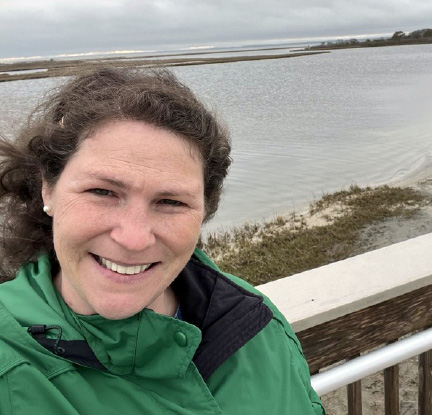
Catherine Janasie
Mississippi
Catherine Janasie is Research Counsel II (Sr.) with the National Sea Grant Law Center (NSGLC) at The University of Mississippi School of Law. At the NSGLC, Cathy provides legal and policy analyses to organizations and government entities on ocean, coastal, and natural resources issues, including regulatory issues related to seaweed. Cathy is also a member of the law faculty and teaches environmental law classes, including Environmental Law, Natural Resources Law, and Agricultural Law. Prior to joining the NSGLC, Cathy received her LL.M. in Environmental & Natural Resources Law from Lewis & Clark Law School in Portland, OR. Previously, she practiced law in New York, NY at the law firm of Carter Ledyard & Milburn LLP. Cathy received her J.D. and B.A. from Rutgers University.
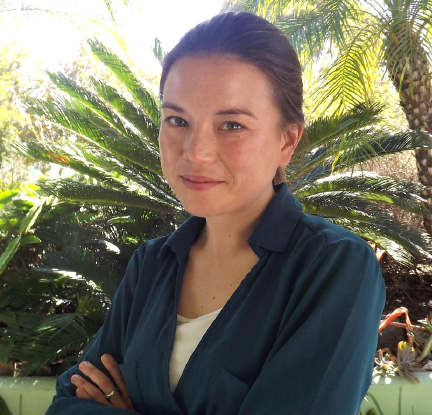
Emily Miller
California
Emily Miller is a seafood sustainability research associate at California Sea Grant, specializing in work that improves the resiliency of California’s relationships with marine resources. Her focus is working toward an integrated well-being of people, economies and ecosystems, grounded in a background of at-sea experience as a commercial fisheries observer in the West Coast region, and in both industry and academia as a consultant and field research associate. She approaches supply chain management, seafood marketing, and stakeholder outreach with an interdisciplinary, community-oriented approach. She has a bachelor’s degree in ecology and evolutionary biology from the University of California, San Diego, and is enrolled in a dual-degree graduate program at Prescott College, AZ, in pursuit of an M.S. in food systems and an MBA in sustainable business and leadership.
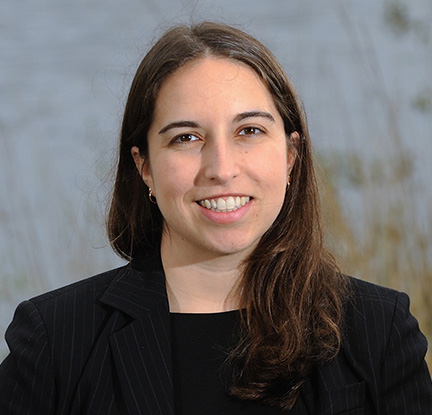
Stephanie Otts
Mississippi
Stephanie Showalter Otts is the Director of the National Sea Grant Law Center and the Mississippi-Alabama Sea Grant Legal Program at the University of Mississippi School of Law. Stephanie received a B.A. in History from Penn State University and a joint J.D./Masters of Studies in Environmental Law from Vermont Law School. She is licensed to practice law in Pennsylvania and Mississippi. As Director, Stephanie oversees a variety of legal education, research, and outreach activities, including providing legal research services to Sea Grant constituents on ocean and coastal law issues. Her duties also include the supervision of law student research and writing projects and providing assistance to organizations and governmental agencies with interpretation of statutes, regulations, and case law. Her research on natural resources, marine, and environmental law issues has been published in a variety of publications.
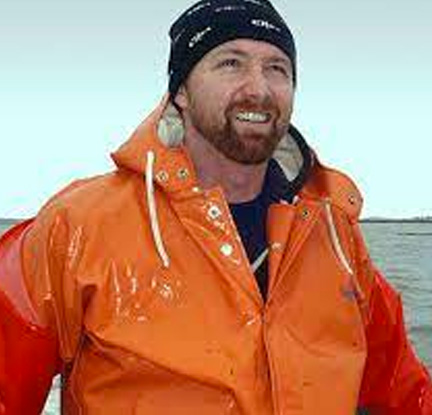
Josh Reitsma
Massachusetts
Josh Reitsma received a bachelor’s degree in environmental science from Unity College and later a master’s degree in aquaculture and fisheries from the University of RI. He has worked with restoration and aquaculture of finfish and shellfish in a variety of capacities from Maine to Alaska, including the management of a small farm in Virginia. Since 2009, he has worked with the Cape Cod Cooperative Extension and Woods Hole Sea Grant in support of fisheries and aquaculture here in Massachusetts.
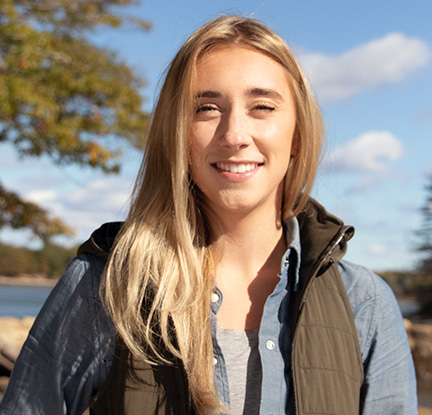
Jaclyn Robidoux
Maine
Jaclyn is a Marine Extension Associate with Maine Sea Grant and University of Maine Cooperative Extension. As a member of the Marine Extension Team, Jaclyn focuses on the development of the seaweed sector in Maine, with an emphasis on sustainable production, post-harvest processing, and product development. Jaclyn works to support Maine’s seaweed farmers, processors, and stakeholders through technical field assistance, applied research, coordination of aquaculture trainings and workshops, and extension programming. Jaclyn’s background is in seaweed biology and cultivation, specifically focusing on the diversification of domestic seaweed farming through the production of red algal species. This experience in technical aquaculture research helps Jaclyn link science with industry opportunities and capacity, to foster robust and sustainable working waterfronts along Maine’s coast.
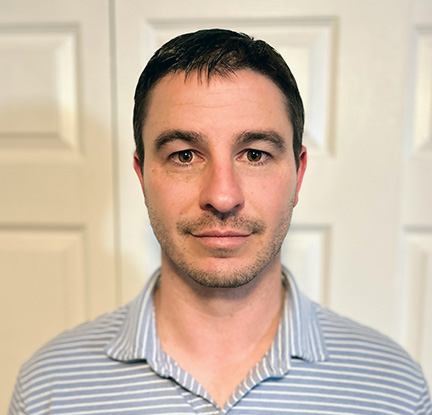
Barry Udelson
New York
Barry Udelson is an Aquaculture Specialist with New York Sea Grant, based in Long Island. His focus area encompasses shellfish, macroalgae, and finfish aquaculture in Long Island and the upper regions of New York. His overall goal is to enhance and assist with developing the aquaculture industry through research, partnerships, and workforce development. Barry earned his bachelor’s degree at Southampton College and a master’s from Long Island University, both in Biology with a Marine Science concentration. He has a diverse background in marine ecology, having worked in the Florida Keys, the Virgin Islands, aboard commercial fishing vessels, as well as restoring and monitoring eelgrass and saltmarsh habitats. Prior to starting with Sea Grant, Barry worked for Cornell Cooperative Extension of Suffolk County where he designed, built and managed a shellfish hatchery and nursery program for 9 years raising microalgae, clam, and oyster. During this time, he also developed an oyster community gardening program, and was conducting research on ribbed mussel aquaculture and their ecosystem benefits including the ability to filter fecal coliform bacteria.